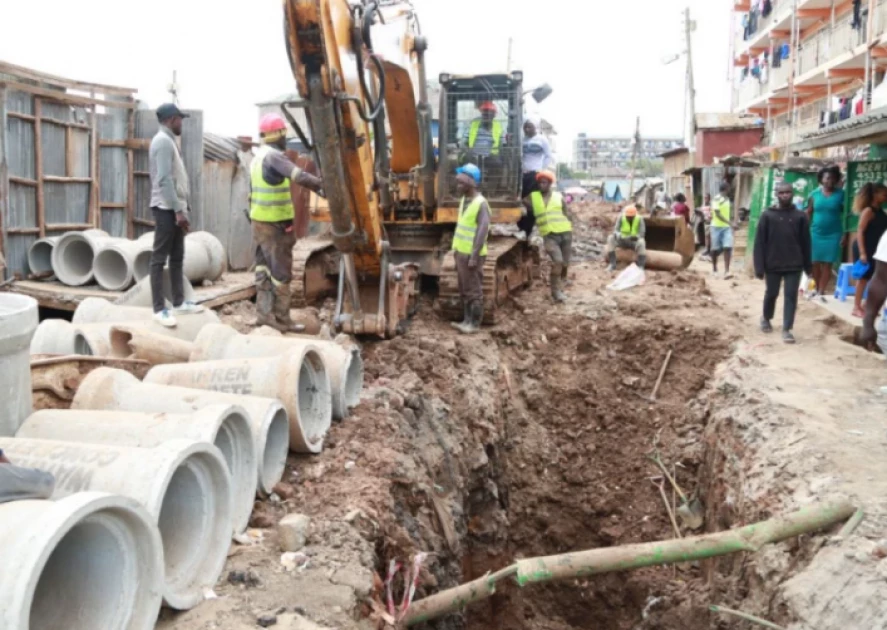Nairobi County launches simplified sewer system to improve sanitation in informal settlements

File image of sewer line expansion key estates in Nairobi. PHOTO| COURTESY

Audio By Vocalize
Governor Johnson Sakaja said the project, implemented through the Nairobi City Water and Sewerage Company (NCWSC), is part of a broader plan to improve hygiene and living conditions in low-income neighborhoods.
“Through our water company, we have constructed a three-kilometer simplified sewer line in Mukuru Kwa Reuben, connecting close to 10,000 households — translating to about 80,000 residents. These are people who never had the opportunity to access clean water before,” Sakaja said.
For years, residents in informal settlements have relied on illegal water connections, resulting in frequent disruptions and contamination. Sakaja said the new system will help streamline water supply and reduce losses caused by unlawful tapping.
The project is being implemented in partnership with the Athi Water Works Development Agency (AWWDA) and the African Water Facility (AWF) under the Nairobi Sanitation Programme. It aims to provide affordable and safer water and sanitation services to underserved areas.
Once completed, Sakaja said, the network will help reduce cases of waterborne diseases and improve overall environmental hygiene.
“We are addressing the challenge of poor sanitation in informal areas by selling water affordably and expanding our network using locally available technology,” he said.
Nairobi Water Chief Officer Oscar Omoke described the initiative as an important step toward improving water infrastructure in informal settlements.
“The simplified sewer system is cheaper, easier to install, and more adaptable to the dense layout of settlements compared to traditional systems. That’s why we’ve prioritized these areas,” Omoke said.
The county is also counting on an additional 140 million litres of water per day from the recently completed Northern Collector Tunnel, which has increased Nairobi’s total supply from 525 million litres daily. Sakaja said the additional capacity has improved both water pressure and delivery frequency across the city.
Areas already receiving steady water from the Northern Collector Tunnel include South B, South C, Jomo Kenyatta International Airport (JKIA), Export Processing Zone (EPZ), Pangani, Eastleigh, Buruburu, Racecourse, Gikomba, Juja Road, Mathare, Huruma, Kariobangi North and South, Umoja, Donholm, Tassia, Fedha, Nyayo Embakasi, and Embakasi Village.
From the Kabete reservoir, water is reaching high-demand zones such as Westlands, Parklands, Upper Hill, Kileleshwa, Kilimani, Dagoretti, Eastleigh, Lang’ata, Mountain View, Naivasha Road, Ngando, and parts of Karen.
Governor Sakaja is scheduled to commission the new Lang’ata Water Project in the coming weeks.
The project is expected to ease long-standing water shortages that have affected Lang’ata residents for years.


Leave a Comment